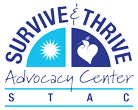Over 20 years ago, I worked with the FSU Center for the Advancement of Human Rights and helped create Florida’s first strategic plans on human trafficking. We also started the first human trafficking working group in Florida that pulled together experts from around the state. At that time, we did not hear the phrases “parental” or “familial” trafficking very much at all.
Now, I’m the executive director of the Survive and Thrive Advocacy Center (STAC), a nonprofit that assists human trafficking survivors in Florida’s Big Bend. Today, we see both parents and family members trafficking their relatives far too often. In fact, one study estimated that 41% of child trafficking (for both sex and labor) is carried out by family members or caregivers. Examples include a parent who is addicted and “gives” their child to a sex trafficker in exchange for drugs, sexually abuses their children live online for profit, or makes the child work in the fields or else suffer extreme physical violence if they don’t comply.







